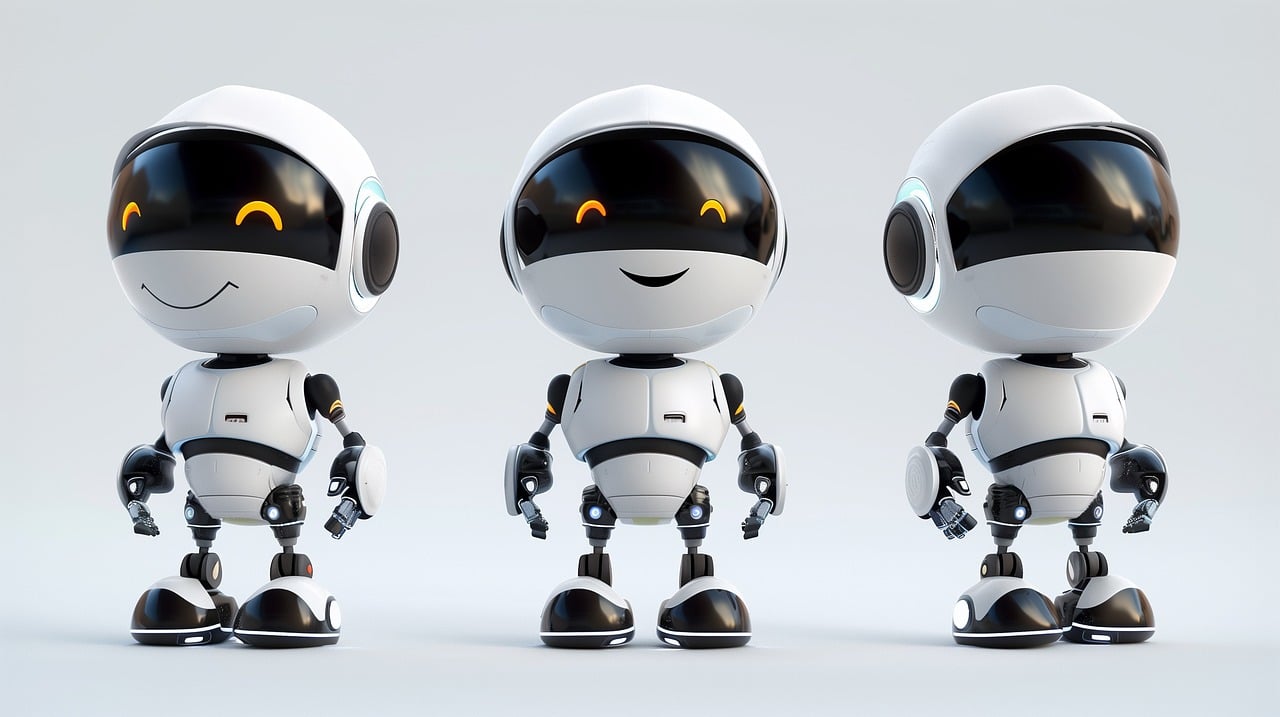AI in Marketing: Personalizing Customer Experiences at Scale

Artificial intelligence (AI) is transforming marketing by enabling personalized experiences at an unprecedented scale. Marketers are now using AI to connect with customers more effectively, predict their needs, and offer tailored solutions in real-time. AI’s ability to process vast amounts of data and identify patterns provides a clear path for creating individualized marketing strategies. This shift is reshaping customer engagement, driving brand loyalty, and delivering measurable business results.
The Rise of AI in Personalization
AI-driven personalization in marketing has gained significant momentum over the past decade. With customers expecting tailored interactions across channels, businesses are turning to AI to meet these demands efficiently. A study by Epsilon found that 80% of customers are more likely to purchase from brands that offer personalized experiences, emphasizing the importance of this shift.
But achieving personalization at scale is challenging. It requires processing millions of interactions, analyzing behavior, and predicting future preferences—all in real-time. AI tackles this by automating data collection and analysis, allowing marketers to offer hyper-relevant content to each customer based on their unique behaviors, preferences, and histories.
AI-Powered Customer Segmentation
One of the most critical uses of AI in marketing is customer segmentation. Traditional segmentation divides customers into broad categories based on basic factors like age or geography. AI, on the other hand, refines this by analyzing complex data sets to create highly specific micro-segments. By factoring in browsing habits, purchase history, and even social media interactions, AI algorithms deliver more granular insights.
For example, Netflix uses AI to analyze user behavior and preferences, recommending movies and shows that align with each subscriber’s tastes. This goes beyond simple genre recommendations, diving into specific details like preferred themes, actors, or content length. Netflix’s AI-driven recommendation engine reportedly influences 80% of the content watched on the platform, illustrating how sophisticated AI-driven segmentation can increase engagement and satisfaction.
Similarly, Spotify applies AI for personalized music recommendations, analyzing listening habits to curate tailored playlists. Spotify’s Discover Weekly playlist, which uses machine learning algorithms, has been a major success, with 40% of users saving at least one song from the playlist each week.
Dynamic Content Creation
AI also enables dynamic content creation, which allows marketers to produce personalized messaging for each customer based on their current engagement and journey stage. AI tools can generate product descriptions, email copy, and even social media posts that speak directly to a customer’s preferences.
A notable example is Coca-Cola, which has been experimenting with AI-driven content creation to craft personalized digital experiences. Using data from user interactions and preferences, Coca-Cola creates tailored advertising that adjusts to regional tastes and preferences. By automating content personalization, Coca-Cola ensures that their messaging resonates with individual consumers without overwhelming creative teams.
Predictive Analytics for Enhanced Customer Journeys
Another key application of AI in marketing is predictive analytics. AI models can analyze customer data and predict future behaviors, helping marketers anticipate needs and proactively engage customers. By understanding what customers are likely to do next, brands can adjust their strategies accordingly, offering timely and relevant interactions.
Amazon is a leading example of this, utilizing AI-powered predictive analytics to recommend products that align with customers’ shopping habits. Their recommendation engine, which analyzes previous purchases, browsing history, and even items viewed but not bought, accounts for 35% of Amazon’s total revenue. By understanding individual buying patterns, Amazon delivers highly accurate product recommendations, boosting conversion rates.
AI-powered predictive analytics also play a crucial role in reducing churn. Brands like Sephora use AI to analyze customer behavior and identify early signs of disengagement. By predicting when a customer is likely to drop off, Sephora can offer targeted promotions or incentives to retain that customer, improving loyalty and lifetime value.
Real-Time Personalization Across Channels
Consumers engage with brands across multiple touchpoints—email, social media, websites, and apps—expecting a seamless experience. AI enables real-time personalization by analyzing customer interactions as they happen, ensuring that marketing messages remain relevant and timely across channels.
For instance, Starbucks uses AI to personalize customer interactions in real-time through its mobile app. The app uses data such as purchase history, location, and even the weather to recommend beverages and offer personalized promotions. If a customer frequently orders iced drinks on hot days, Starbucks’ AI system will suggest those options whenever similar conditions arise. This level of personalization not only increases purchase frequency but also deepens the customer’s connection with the brand.
Chatbots and Virtual Assistants for Personalized Support
AI-powered chatbots and virtual assistants are transforming customer service by providing personalized, real-time support at scale. These AI tools can handle common customer queries, offer tailored product recommendations, and guide customers through the purchase process—all without human intervention.
H&M, the global fashion retailer, has integrated AI chatbots into its e-commerce platform to help customers find products that match their style preferences. By asking customers a series of questions about their clothing preferences and analyzing their responses, the chatbot curates a selection of items that fit the individual’s taste. This personalized assistance enhances the shopping experience, reduces friction, and encourages more frequent purchases.
Chatbots also enable brands to engage customers 24/7, offering real-time support and recommendations even outside of traditional business hours. This constant availability not only improves customer satisfaction but also allows brands to capture more sales opportunities.
Ethical Considerations and Data Privacy
While AI-driven personalization offers significant benefits, it also raises important ethical concerns, particularly around data privacy. Collecting and analyzing personal data is essential for effective personalization, but marketers must balance this with customer trust and compliance with privacy regulations like GDPR and CCPA.
To address these concerns, brands need to be transparent about data usage and ensure that customers have control over their personal information. Offering clear opt-in mechanisms and respecting data preferences are essential steps in maintaining trust while using AI for personalization.
Companies like Apple have taken a strong stance on privacy, emphasizing their commitment to safeguarding user data. With features like App Tracking Transparency, Apple provides users with greater control over how their data is shared, allowing them to make informed decisions about personalized marketing.
Unlocking the Full Potential of AI in Marketing
AI is revolutionizing how marketers engage with customers, offering unprecedented opportunities for personalization at scale. From dynamic content creation to predictive analytics and real-time interactions, AI allows brands to connect with customers in ways that feel personal, relevant, and timely.
However, to fully unlock the potential of AI, marketers must invest in the right technologies and ensure that their data strategies are ethical and transparent. By combining AI with thoughtful data management, brands can create personalized experiences that not only drive sales but also foster long-term loyalty.
Staying Ahead in the Age of AI
As AI technology continues to evolve, brands must stay agile and adaptable to keep pace with customer expectations. Personalization is no longer a luxury—it’s a necessity in today’s competitive market. Brands that embrace AI’s ability to deliver personalized experiences at scale will be well-positioned to build stronger customer relationships and thrive in the future.
By integrating AI into their marketing strategies, businesses can not only meet today’s consumer demands but also anticipate and shape future trends. The brands that succeed will be those that blend cutting-edge technology with a customer-first mindset, using AI to create meaningful, personalized interactions that resonate on a deep level.









